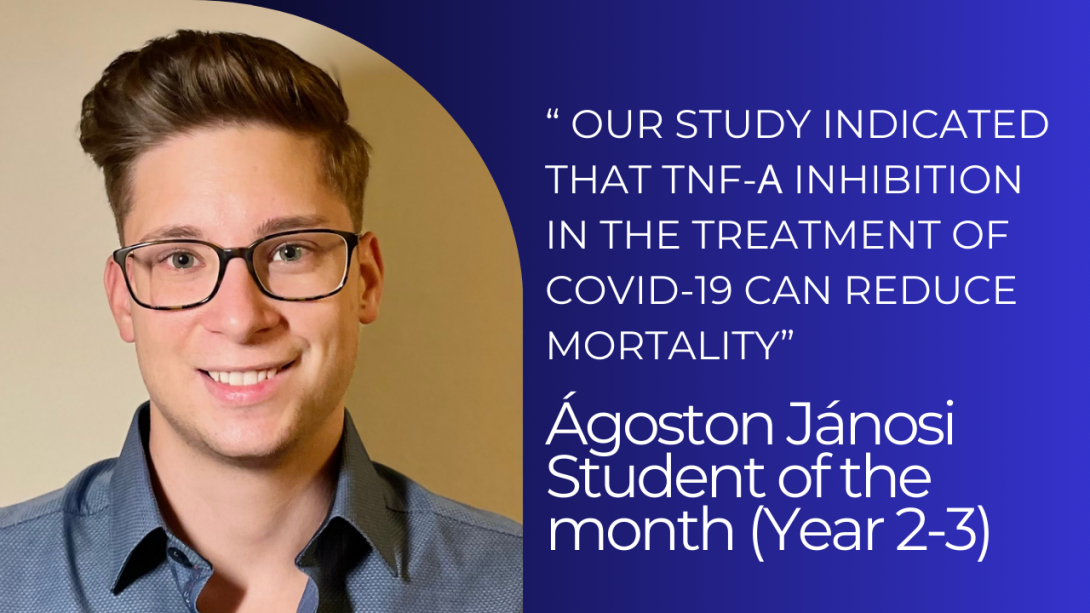
He started his residency training during the pandemic and spent its first year working at the COVID outpatient clinic of his hospital. So it was pretty clear that he wanted to focus on coronavirus infection in his PhD research. One of his meta-analyses has been completed, and its results have just been published in the high-impact paper Critical Care. In May, Ágoston Jánosi was named Student of the Month (Year 2-3) at the Centre for Translational Medicine.
Dr. Jánosi is a resident at the Heim Pál National Pediatric Institute, and started his Ph.D. training three years ago. He chose the CTM training because he thought it would be an excellent opportunity to acquire the knowledge needed for research alongside his clinical work, and to conduct scientific work himself. His topics are related to SARS CoV-2. This idea originated from the fact that he started his residency training around the start of the pandemic and spent its first year working at the COVID outpatient clinic.
“I found the topic of COVID extremely interesting, so it was natural for me to start researching in that area. My first project was based on the fact that a significant number of school-age children infected with SARS CoV-2 were asymptomatic, yet capable of transmitting the infection to others. In my research, we wanted to clarify the proportion of infected children who were asymptomatic. We were also curious about the frequency of asymptomatic cases within each age group. We submitted our first meta-analysis to JAMA Pediatrics, and although the editorial board liked it, they asked us to update it. This was because by the time the research was completed, the pandemic had been going on for a long time, new virus variants had appeared, and vaccines were also available – so, we had to expand our research. We have not yet finished this work, but in the meantime, I have completed my second meta-analysis, in which I investigated the effectiveness and safety of TNF-alpha inhibitors in COVID-19 therapy. The results of this research were recently published in Critical Care.”
The idea for the recently published research came from a study involving patients receiving TNF-alpha inhibitor therapy for chronic diseases. Among them, there were fewer cases of severe COVID infection. This led to the hypothesis that TNF-α inhibitors might help modulate the inflammatory response and potentially improve clinical outcomes in severe COVID-19 cases. “Since we wanted to exclude the possibility that the better outcome was simply due to chronic patients being more careful and less likely to become infected with COVID-19, we only included studies in our meta-analysis where patients had not previously received TNF-α inhibitors. This allowed us to examine the effect on COVID-19. In our research, we wanted to find out whether these drugs could be used to treat severe COVID-19 infections. There were not many studies on this topic, but we eventually found enough, and we also found randomized trials and case studies that we could use for our analysis. Our study indicated that TNF-α inhibition in the treatment of COVID-19 can reduce mortality. This result is important because it shows that it is worth treating patients in a severe condition with these drugs. It would also be worth investigating whether TNF-α inhibitors can be used in children.”
(Emese Szabó)